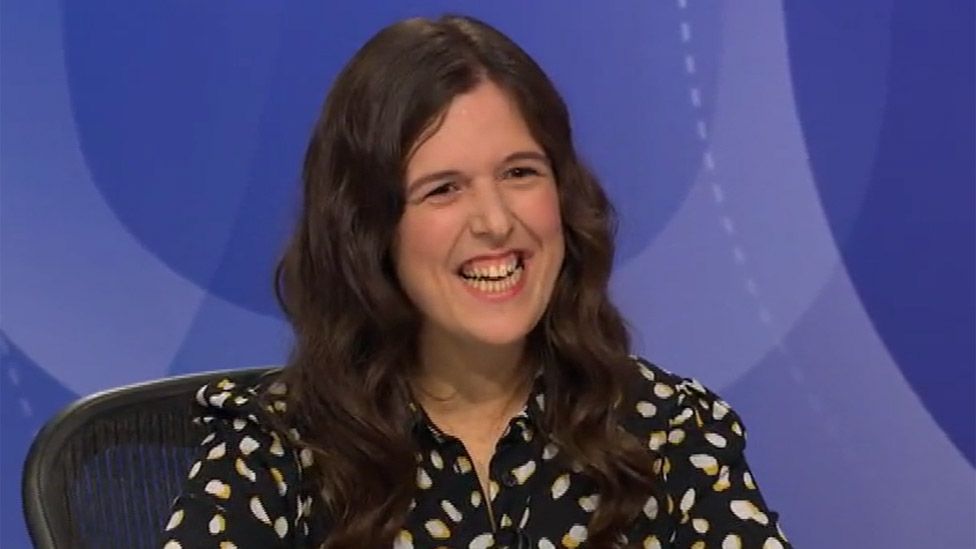Comedian Rosie Jones 'more determined' after abuse from Question Time viewers
- Published

Comedian Rosie Jones has said getting online abuse after appearing on BBC One's Question Time has made her "more determined" to speak up for minorities.
Jones, who has cerebral palsy, appeared on the programme's panel on Thursday.
She tweeted: "The sad thing is that I'm not surprised at the ableist abuse I've received. It's indicative of the country we live in right now.
"I will keep on speaking up, in my wonderful voice, for what I believe in."
The comedian and actress, who is known for TV shows like 8 Out of 10 Cats and The Last Leg, said the negative reaction had only served to strengthen her resolve.
'More determined'
"A lot of my job is going on stage and telling silly jokes about my boobies," she said on ITV's Loose Women on Friday.
"So actually to be given a platform where I can speak more seriously about what it's like to be disabled and gay and a woman in this country right now, it feels like such a powerful opportunity.
"Unfortunately after my appearance last night I got a lot of abuse online about how I look and about how I sound and about my disability, and actually that makes me more determined to speak out for minorities because this country needs to be a better and more accepting place to live in."
Analysis by Entertainment reporter Alex Taylor
The response to Rosie Jones's Question Time appearance underlines an uncomfortable truth - society is used to disability being discussed, but not so much disabled people making their own voices heard.
Cultural representation of disability, led by the media, has traditionally been confined to one-note issues of need, such as social care, or Paralympic-esque inspiration narratives. Jones's vocal opinions on a variety of social and political issues challenged this.
The abuse she received reflects the need for change as disability continues to be the most underrepresented area of diversity across the media. Like her, I have cerebral palsy.
But Jones's steadfast defiance also proves the power of representation. It's why the BBC has rightly committed to improving representation of disabled talent on and off-screen, in line with disability storylines in Sex Education and Breaking Bad.
Social media hate doesn't take away words or experiences. Jones's words on Question Time proved that. It does however empower the need for change.
Jones was on the political debate programme with Education Secretary Nadhim Zahawi, shadow Foreign Secretary Lisa Nandy, National Farmers' Union president Minette Batters, and LBC broadcaster Nick Ferrari.
She received support from the likes of TV presenter and author Richard Osman, fellow comedians Shaparak Khorsandi and Kerry Godliman, and the disability charity Scope.
Allow Twitter content?
This article contains content provided by Twitter. We ask for your permission before anything is loaded, as they may be using cookies and other technologies. You may want to read Twitter’s cookie policy, external and privacy policy, external before accepting. To view this content choose ‘accept and continue’.
Khorsandi added her voice, saying: "We are all your army against this hate... I never had a Rosie Jones in the comedy world that I loved as a kid. Very delighted my children do."
Allow Twitter content?
This article contains content provided by Twitter. We ask for your permission before anything is loaded, as they may be using cookies and other technologies. You may want to read Twitter’s cookie policy, external and privacy policy, external before accepting. To view this content choose ‘accept and continue’.
Allow Twitter content?
This article contains content provided by Twitter. We ask for your permission before anything is loaded, as they may be using cookies and other technologies. You may want to read Twitter’s cookie policy, external and privacy policy, external before accepting. To view this content choose ‘accept and continue’.
Related Topics
- Published17 June 2018
- Published13 April 2017